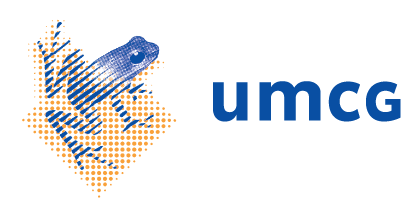BRAINatomy, an atlas of brain damage after radiotherapy
12 November 2020
UMCG is participating in an international study into the effect of radiotherapy on the development of the brains of young children. The study is funded by Stand Up to Cancer (SU2C) and Cancer Research UK (CRUK) with $1 million. The aim of the study is to develop a brain ‘atlas’ to locate regions of the brain that are most sensitive to damage by radiotherapy. This international project unites researchers from the University of Manchester in the UK, St. Jude Children’s Research Hospital in the US and the UMCG in the Netherlands and will take two years.
Radiotherapy is an essential part of the treatment of brain tumours in children with over 70% surviving long term. Despite its success in the treatment of brain tumours, radiotherapy can also have a negative impact on the overall quality of life of these children. This is especially the case for cognitive and hormonal problems that are known to profoundly affect school performance, employability and independent living.
The University of Manchester team, led by Martin McCabe, and the St. Jude Children’s Research Hospital team, led by Thomas Merchant, will analyse a large cohort of paediatric patients treated with conventional X-ray radiotherapy and proton beam radiotherapy. While the UMCG team, led by Lara Barazzuol, will examine how radiotherapy with X-rays and protons damages the developing brain from the brain’s structural level down to the single-cell level, and will confirm the findings from the atlas developed using patient data in animal models. This knowledge could lead to great improvements in radiotherapy clinical practice, as we are able to deliver radiotherapy increasingly accurately and could avoid sensitive areas of the brain, thus improving the quality of life of many children.
The Stand Up To Cancer-Cancer Research UK Pediatric Cancer New Discoveries Challenge supports teams focused on understanding the drivers of pediatric cancers and the usage of novel or repurposed medicines for therapeutic purposes. They support research teams to improve therapies for cancers that impact children and young people and are particularly difficult to treat. In total, three trans-Atlantic teams have been selected for funding who will - after the initial development over two years - compete for an additional two years of funding to further advance their work.

 English
English
 Nederlands
Nederlands